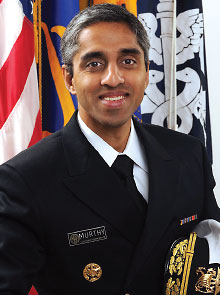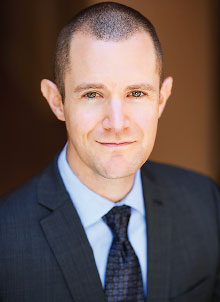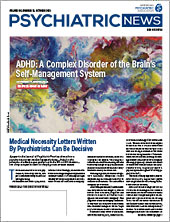The first advisory issued by the 21st U.S. surgeon general asserts that health misinformation is an urgent public health threat that requires a “whole-of-society” effort to confront.
At a panel discussion, Vivek H. Murthy, M.D., M.B.A., said that the instinct to share health information with others “reflects the good in our humanity. … But that good instinct can be harmful when what’s being shared is health misinformation—information that is false, inaccurate, or misleading according to the best evidence at the time.”
During the pandemic, misinformation about masks, COVID-19 treatment, and COVID-19 vaccines has divided communities, led to threats against physicians and public health workers, and cost many lives, Murthy said. Polling by the Kaiser Family Foundation (KFF) suggests that this misinformation is fueling vaccine hesitancy, too: 67% of unvaccinated adults have heard at least one vaccine myth.
Murthy said health misinformation is not a new phenomenon. In the late 1990s childhood vaccinations dropped after a study—later retracted—falsely claimed that the measles, mumps, and rubella (MMR) vaccine caused autism. Pockets of measles outbreaks have occurred around the globe as a result. In South Africa, “AIDS denialism,” a false belief denying that HIV causes AIDs, has cut access to effective treatment and has contributed to more than 330,000 deaths.
Murthy said that false news stories are 70% more likely to be shared by others than the truth, citing an analysis of millions of social media posts between 2006 and 2017 conducted by Soroush Vosoughi, Ph.D., M.Sc., and colleagues and published March 9, 2018, in Science. “Health misinformation causes everyday harm,” Murthy said. “It causes people to turn down effective treatments for cancer, heart disease, and other illnesses. Health misinformation takes away our power to make the best decisions for our health and the health of our families.”
Important Role for Psychiatrists
The advisory calls on physicians and other health care practitioners to leverage their role as highly trusted professionals by proactively addressing health misinformation with patients and the public. Clinicians are advised to “take the time to understand each patient’s knowledge, beliefs, and values. Listen with empathy, and when possible, correct misinformation in personalized ways.”
“The spread of health misinformation is an urgent and significant matter of health for the nation—as well as for communities around the world,” Joshua Morganstein, M.D., chair of APA’s Committee on Psychiatric Dimensions of Disaster, told Psychiatric News. “With this advisory, the surgeon general has chosen to elevate what is clearly an enduring and increasing barrier to health care.”
Physicians may need to shift their approach to combat health misinformation. Morganstein said a growing body of evidence suggests that citing facts, figures, and statistics is not effective at changing people’s minds. “In fact, when we spout data points, it may actually be increasing patients’ mistrust in us,” he said.
Some physicians, however, may believe it is not their job to try to change patients’ minds and that their role is only to make recommendations, he added. However, “when we come from that perspective, we will miss a lot of opportunities to work with patients on many different aspects of their health. When we don’t ask patients ‘What are your concerns about my recommendations?’ or ‘What are the worries you have about this medication?,’ we can be sure they will get the answers somewhere else, and most likely it will be from a far less informed source than we are.”
Coaxing Patient Vaccination
Historically, people with serious mental illness (SMI) are an undervaccinated population: Only 25% of adults with SMI get a flu shot each year, compared with almost 50% of other adults. Earlier this year, APA urged states to prioritize coronavirus vaccination for people with SMI because of their increased risk of being hospitalized and experiencing serious complications including death.
“When it comes to willingness to accept the COVID-19 vaccine, a clear and unambiguous recommendation from a person’s trusted health care professional remains a significant factor in moving people from hesitancy to willingness to accept vaccines,” Morganstein said. “It is important that psychiatrists make those recommendations.” (See “Vaccination Conversations: Influencing Critical Health Behaviors in COVID-19”
here.)
He prefers “nudging” patients toward gradual vaccine acceptance utilizing established principles of behavioral science. “The more precisely you understand what motivates a patient, … the more effectively you can tie any recommendations back to that.” For example, he said, people who are motivated by social norms could be told, “Two-thirds of the people in your community have already been fully vaccinated,” he said. Those who fear losing an opportunity could be warned, “As soon as boosters are required, it may become difficult for people to get their first series of shots.”
According to polls done by KFF, some of the most pervasive myths surrounding the shots are that the vaccine can cause COVID-19 infection (36%) or infertility (31%). Other prevalent myths include that the vaccine can change an individual’s DNA or that people who have had COVID-19 should not get vaccinated, KFF wrote. Also, more than half of unvaccinated adults (52%) aren’t aware the vaccines are free.
Morganstein said, “People have stories about the vaccines that they’re telling themselves if they haven’t gotten vaccinated yet. For example, ‘My mother had a terrible reaction to the vaccine’ or ‘I might be inserted with a microchip.’ If we don’t know what those stories are, then we can’t help them.” ■
The surgeon general’s report “Confronting Health Misinformation” is posted
here.
“The Spread of True and False News Online” is posted
here.


